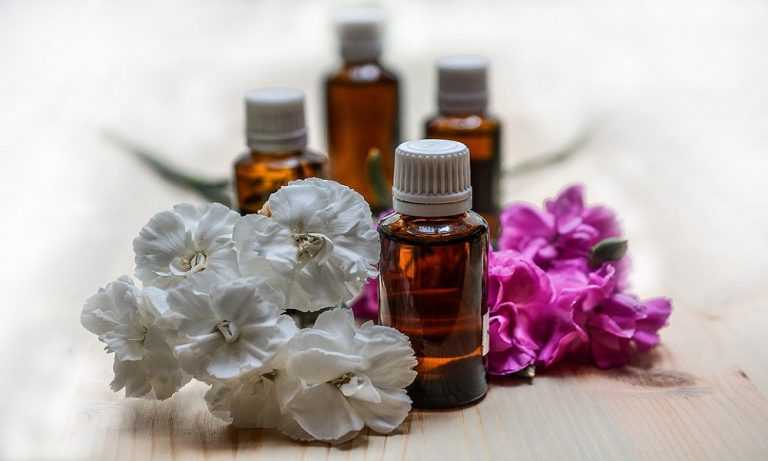Essential oils are deemed as wonderful complementary partners in herbalism. These oils are known for their holistic approach when it comes to the general well being and condition of a person (1). That’s why they’re popular because they’re effective health alternatives and excellent age-old treatments for feeling better (2). Thus, it’s only normal to take care of them as they’re not only expensive but quick to rot as well when not stored properly.
For those who have oils at home, it’s crucial that you know how to keep them. To give you an idea, below is a guide on how to store essential oils and extend their shelf life:
How Oils get Oxidized
Essential oils, for instance, lavender, are prone to autoxidation because some lack natural elements that help retain potency and effectiveness (3). They do vary, but what’s common among these oils is that they should be stored well to prevent them from getting spoiled.
Oxidation happens when the oils are exposed to oxygen. The sensitive elements found in the oils absorb oxygen, turning them to peroxide. Also, other elements to take note of are heat and light. Heat causes the oil to evaporate faster while light exposure will give ultraviolet light and free radicals to the oil.
While this can’t be prevented, we can slow down oxidation (4).
Shelf Life of Essential Oils
As stated above, oils have a varying shelf life. Yes, they do get expired too. This is because they can oxidize, and, as they’re volatile substances, they can evaporate (5). Shelf life can be identified by the chemical compounds and composition of the oils. This is why some oils oxidize quickly and the others don’t.
Oils that are rich in monoterpenes, the compounds that you can find in oils that are taken from plants, vegetables, fruits, herbs, and spices that provide aroma and flavour (6), have a shorter life span, around 1-2 years.
On the other hand, the oils with a lot of phenols, an organic compound that is characterized by hydroxyl groups that are attached to a carbon atom (7), can last around 3 years; on the other hand, oils that have esters, ketones, and monoterpenols last longer, around 4-5 years.
However, oils that last the longest contain sesquiterpenols and sesquiterpenes in them, lasting around 6 years.
Do Essential Oils Go Bad?
Well, many of you must be wondering “Do essential oils actually go bad? “If my essential oils are pure why would they have an expiry date?”
Yes, it is true that pure essential oils do not contain water, therefore mould, mildew or yeast do not grow in them. However, it is important to note once you open your essential oil bottle and start using them, they start interacting with the air, heat, and light and that causes the oils to change their properties.
Some manufacturers have a shelf life chart or guideline for their oils.
How to Tell if Oils Have Gone Bad?
Oxidizing happens, especially when you lack knowledge in storage and care for essential oils. However, some people can’t really tell if their oils have already gone bad. If you’re one of these people, here are some signs that you should take note of:
- Aroma
When your oils change aroma, then this is a sure sign that they’ve already oxidized. Anything off or funky-smelling is already a good indicator that your oils have gone bad.
- Adverse Reactions
Oxidization or spoilage can cause sensitization or irritation, which usually results in rashes, peels, burns, and the like (8). So, if you’re suspecting that your oils have already gone bad, you can do a small skin test. But, be very wary and careful as some people react seriously and gravely when exposed to oxidized oils.
Where and How to Store your Essential Oils?
To make your oils last longer, here are some simple yet effective tips on how to properly store them:
- Keep oils in dark bottles to prevent too much light exposure.
- Use caps that are airtight and solid. Don’t go for rubber caps as they will deteriorate and affect the quality of your oil in time.
- Keep the oils away from direct heat or sunlight. You can store them in your fridge or cupboards.
- Retain labels or keep track of the oils’ purchase date so that you’ll know when they’ll expire.
Click to Buy 100% Pure and Natural Oils from Rocky Mountain Oils
Do you know how I manage my kid’s colds and flu with essential oils? Click here to find out
References:
- Boca Raton (FL): CRC Press/Taylor & Francis, Herbal Medicine: Biomolecular and Clinical Aspects, 2nd Edition, 2011, PMID: 22593939
- Why Essential Oil Aromatherapy is so Popular, The Bottle Blog. Link here
- Hagvall L, Sköld M, Bråred-Christensson J, Börje A, Karlberg AT, Lavender Oil Lacks Natural Protection Against Autoxidation, Forming Strong Contact Allergens on Air Exposure, 2008 Sept, PMID: 18759894
- Oxidized Oils and How to Find Them, PhytoChemia. Link here
- Shelf Life of Essential Oils and How to Make Them Last Longer, Using Essential Oils Safely. Link here
- Loza-Tavera H, Monoterpenes in Essential Oils, Biosynthesis and Properties, 1999, PMID: 10335385
- Phenol Chemical Compound, Encyclopedia Britannica. Link here
- Shelf Life: How to Avoid the Dangers of Expired Oils. Link here



Comments are closed.